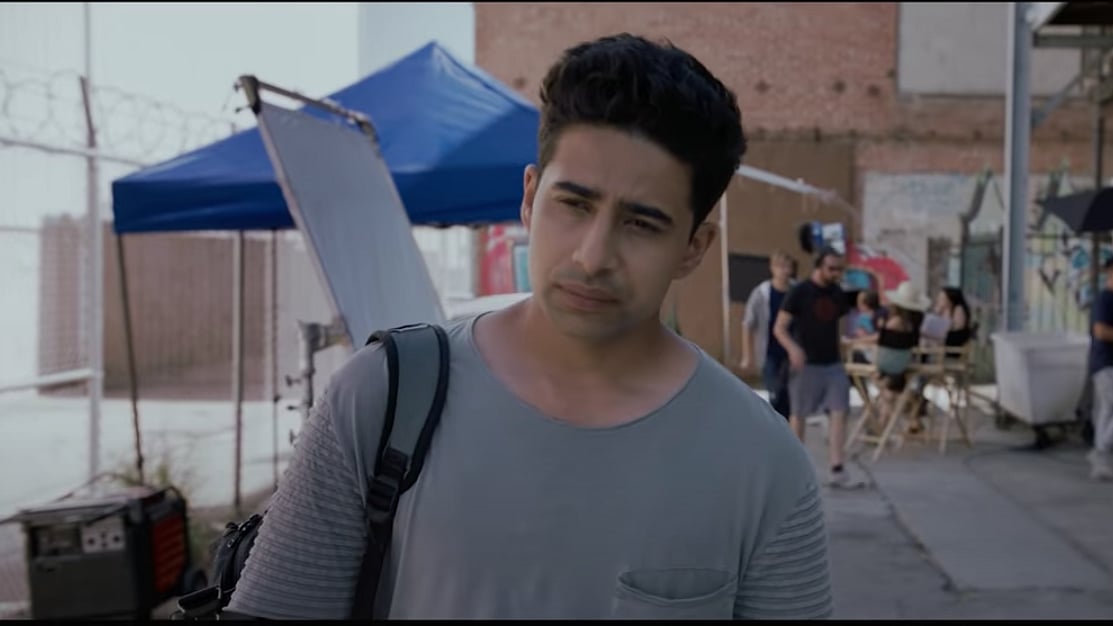Renzu's The Illegal Speaks About Crushed Dreams, Apathetic Systems
The film is streaming on Amazon Prime Video.

advertisement
(The article contains spoilers)
Danish Renzu's film The Illegal premiered quietly on Amazon Prime Video on 23 March. Starring Suraj Sharma in the lead, the film has travelled to international film festivals before taking the OTT route.
The Illegal charts Hassan's (Suraj Sharma) journey as he gets himself enrolled in the filmmaking course in one of the elite institutions of America. But little does he know that he will be reminded at every step that he is an 'outsider'.
The premise isn't new; a number of films have been made surrounding the innumerable hardships immigrants have to face. But Renzu's layered film also talks about privilege, the burdens of patriarchy, captivity etc.
The Privilege of Being Nice
Hassan (Suraj Sharma) belongs to a middle-class family. His parents (played by Adil Hussain and Neelima Azim) have comfortably educated both their children. Hassan does not fly to the United States to get away from a life of penury, instead he chooses to pursue an expensive course abroad that pushes him into the depths of poverty. Desperation compels the student to take up a job at an Indian restaurant with a meagre salary, and hollow words of hope and encouragement doesn't help.
One such scene has Hassan’s professor expressing his concern about the boy not performing well. When Hassan confides in that he is in financial distress, the professor says, “Timing is everything in life. Take some time off, go back to India maybe, sort out your financial problems and come back when you are ready”. Hassan has put a lot at stake to chase his dreams and he does not have the privilege of a second chance.
In another instance, a well-to-do American woman whom Hassan befriends tells him, “You just need to take a deep breath and trust that everything is gonna work out. Everything always works out”. This advice, at a time when Hassan’s dreams are falling apart, reeks of privilege. The woman is well-intentioned, but her cushy life doesn’t allow her to fathom the reality of immigrants like Hassan. Both the professor and the woman remind us of a line from Parasite: “She’s nice because she’s rich”. In this case, because they are privileged.
The Illegal doesn’t judge any of the characters, but Hassan’s stare of disbelief at the lady's words speaks volumes about what exactly is wrong.
Patriarchy, Sometimes Engulfing Men too
A still from The Illegal.
The Illegal’s masterstroke is that it depicts how the deep-seated patriarchy engulfs its men too. Hassan’s family isn’t indifferent, but somehow there is a lingering expectation of him holding the reigns once he graduates from college. From the onset, Hassan’s father isn’t very happy about his son’s career choice. He believes that filmmaking is not something cut out for people from middle-class families. Even his uncle, who failed to realise his dreams in America, is very discouraging. Despite the resistance, Hassan still tries his best to make things work. But misfortunes keep piling on him. From his father’s surgery to sister’s wedding, it is Hassan who arranges the funds despite his own financial woes. Even his mother, who has always extended her support, falls back on him in times of stress and looks up to her son to take care of the family. For a system that’s designed to mostly uplift men and help them climb the stairs to success, the burdens sometimes can crush them too.
Captivity, Not Just For Immigrants
In one of the best scenes from the film, Hassan is seen talking to his sister (Shweta Tripathi) the day she is supposed to get married. By then, Hassan is trapped in the foreign land, another immigrant waiting in vain to get the green card and legal status so that he can escape the vicious cycle. When Hassan explains the reason he is not being able to come down to India, Mahi says, “Bhai, you sound like a captive”. Their conversation steers to Mahi saying she is also caught in the web. “I just ended up being like everybody else. First get married and take care of the house, then have kids and take care of them. I will always be living for someone else”, she weeps. Though Hassan consoles her, we know that both of them are shackled by systems that failed them time and again.
Holding on to Optimism
Suraj Sharma in The Illegal.
Despite the bleakness all around, Hassan’s character holds on to the last straws of optimism. The owner of the restaurant waits Hassan works in looks for opportunities to insult him, yet Hassan tries to make the customers laugh. He comforts the elderly staff member, who has given up all hope to return to India and meet his family. It is the young boy’s positivity that sees his through the darkest of times.
“Hopefully one day I’ll be able to give the audience a glimpse of the true human condition”, Hassan tells his professor after being asked as to why he wants to become a filmmaker. Hassan does write his story in the end, but one that is far from the rosy world he imagined to carve for himself. The ‘true human condition’, as The Illegal puts it, is one where there is a constant dilemma as to whether one must pursue one’s dreams or ‘wisely’ give them up before it destroys the person’s life. Unpretentious, moving and made with a lot of heart - Renzu’s film strikes the right chords.
(At The Quint, we question everything. Play an active role in shaping our journalism by becoming a member today.)